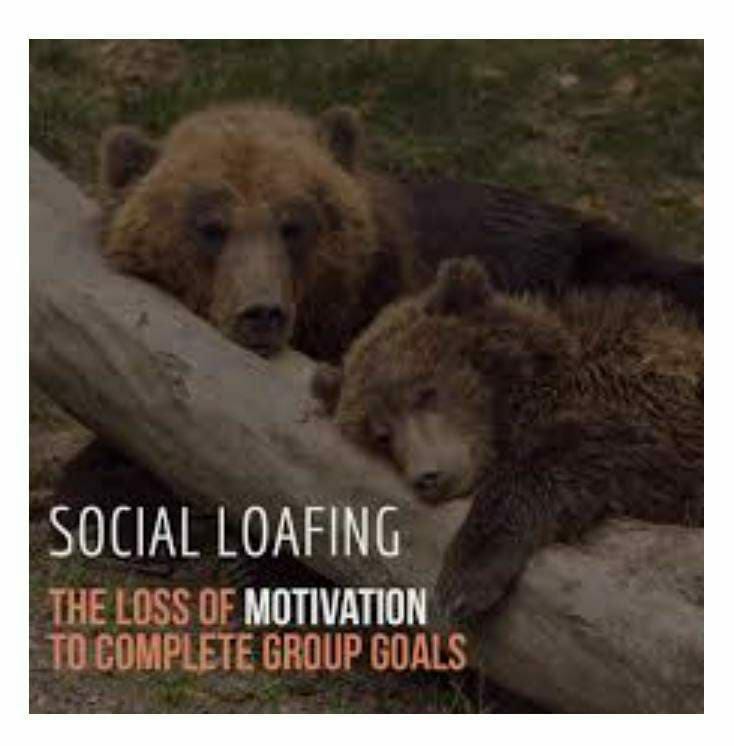Maximilian Ringelmann, a French engineer, studied the performance of
horses in 1913. He concluded that the power of two animals pulling a coach
did not equal twice the power of a single horse. Surprised by this result, he
extended his research to humans. He had several men pull a rope and
measured the force applied by each individual. On average, if two people
were pulling together, each invested just 93 percent of his individual
strength, when three pulled together, it was 85 percent, and with eight
people, just 49 percent.
Science calls this the social loafing effect. It occurs when individual
performance is not directly visible; it blends into the group effort. It occurs
among rowers, but not in relay races because here, individual contributions
are evident. Social loafing is rational behavior: Why invest all of your
energy when half will do—especially when this little shortcut goes
unnoticed?
Quite simply, social loafing is a form of cheating of which we are all guilty even if it takes place unconsciously, just as it does with the
horses.
It is “My neighbor will do it” syndrome.
Hence you require good leaders and coaches to get the best out of a team, to use the team’s maximum potential, lay out the responsibilities of each member, and make the team achieve greater heights.
As Steve Jobs said, “Management is about persuading people to do things they do not want to do, while leadership is about inspiring people to do things they never thought they could.”
Devise strategies to overcome social loafing, get the best out of your team and stay blessed forever.

